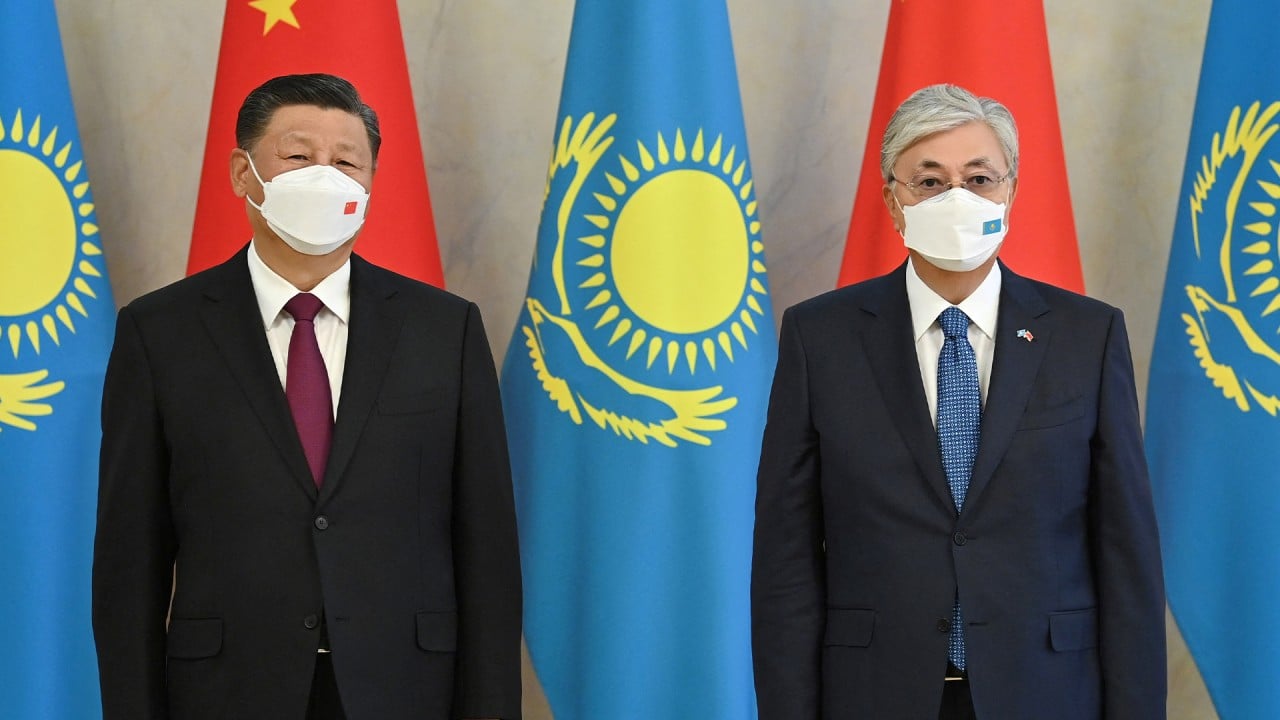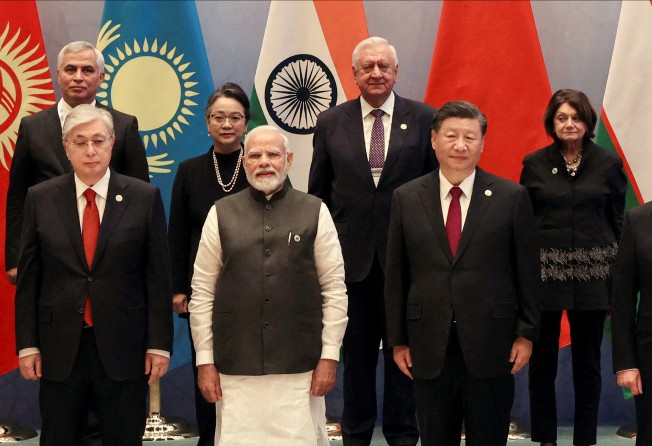
01:36
Chinese President Xi Jinping arrives in Kazakhstan on first trip abroad since pandemic began

The geopolitical split that is taking place between China and India could not be more obvious.
Standing side by side during a group photo session at the recent Shanghai Cooperation Organisation summit, there was no eye contact, smiles or handshake between the neighbouring countries’ leaders.
President Xi Jinping and Prime Minister Narendra Modi have not met or spoken since a military stand-off began in the disputed Himalayan border region in May 2020. There were no one-on-one talks at the gathering in Samarkand, Uzbekistan on September 16.
Chinese Foreign Minister Wang Yi and his Indian counterpart S. Jaishankar had a similar awkward encounter when photos were taken at a BRICS gathering in New York last week, and again there was no bilateral meeting.
These diplomatic snubs are unusual – especially given the recent disengagement of Indian and Chinese troops in the western Himalayas ahead of the SCO summit. It has also raised questions about whether Chinese diplomacy is really focused on mending ties with its neighbours.
With Xi and US President Joe Biden expected to meet face-to-face in November – at a time when both sides see the other as their top national security threat – it is hard to see why there was no meeting with Modi.
It is, however, a clear sign of how far New Delhi’s attitude towards Beijing has changed since a border clash in June 2020, the deadliest in 50 years. And with China mired in a feud with the West, battling with zero-Covid chaos and economic woes at home as well as its strategic alignment with Russia, it is also clear that prolonged hostilities with India are not in Beijing’s interests.
It adds to internal tensions and disunity within the SCO, including over Russia’s invasion of Ukraine, the US-China rivalry, military conflict between Azerbaijan and Armenia, and the Kyrgyzstan–Tajikistan border clashes.
The grouping – founded in 2001 and initially led by China and Russia as a political, economic and security platform to challenge the US-led world order – has long been criticised as a talking shop, especially after India was included in 2017.
Some say India’s role is to sow discord and undermine the SCO’s anti-Western agenda. That may be an overstatement, but with its strategic pivot to Washington since 2020, New Delhi has managed to stall some of Beijing’s top foreign policy aims, and prevented the bloc from taking sides in the US-China rivalry.